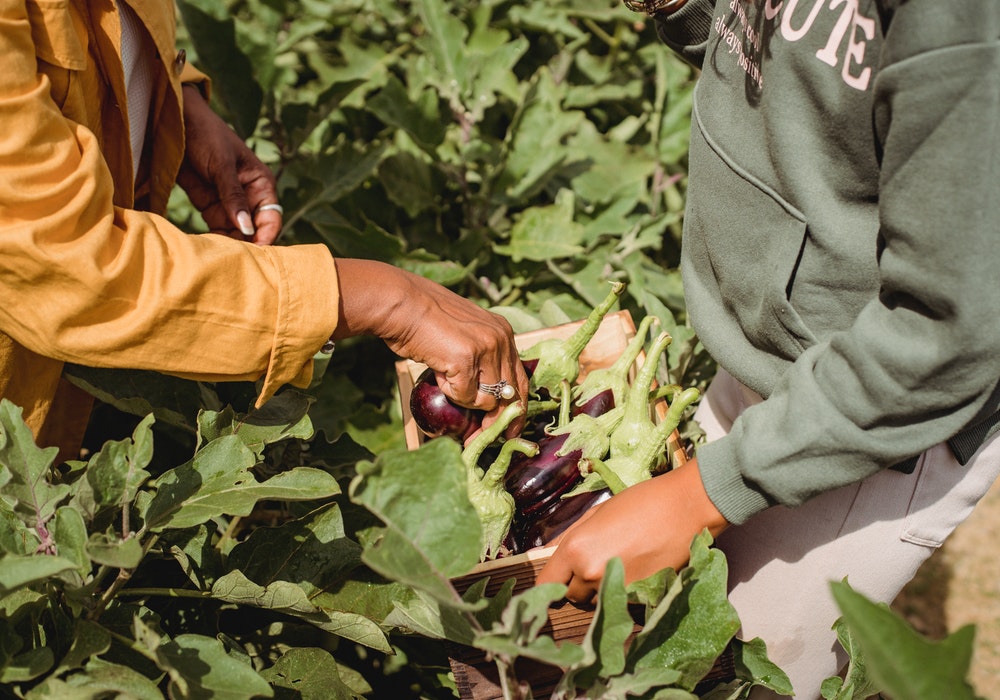As the nation battles the coronavirus pandemic there’s never been a more important time for communities to come together and support each other. Many small food businesses have moved their trade online during the lockdown. The quest for quality, fresh produce ends here. Farm shops across the UK are launching home food delivery services to keep the nation fed during the coronavirus pandemic. It’s time for you to switch to organically-produced fruits and vegetables delivered to your doorstep.
From Field to Doorstep
Despite their stretched sizes, supermarkets do restrict variety. Big chains buy and promote foods that suit their purposes. They select goods they can obtain in bulk quantities, especially produce that packs easily, travels well and doesn’t spoil.
But if you’re a farm retailer, you already know this. You’re just waiting for the rest of us to wake up and smell the roses. Or rather, to smell the pungent, earthy smell of strange-looking root vegetables.
Well, COVID may have resulted in one good thing for local farmers in the UK. Restricted imports combined with stay-at-home orders are changing how we eat and shop. We investigate what this means for the small, local retailer and how you can take advantage of the trends.
Supermarkets’ plight means delight to farmer stores
Stockpiling at the outbreak of the COVID pandemic left supermarket shelves bare. It wasn’t long before consumers knocked on the doors of smaller, local producers.
Compared to pre-COVID times, we are six times more likely to search for “veg boxes” online. Moreover, we are three times as likely to buy from local independent bakeries, butchers and grocers.
When restaurants and pubs were shut down, many farmers were left with unclaimed perishable stock. Online trading marketplaces, like ITradenetwork, stepped up to link producers to consumers. By using their online platform, they helped farm shops access stock to service the new demand. Currently, the UK farm shop turnover exceeds £1.5 billion.
Farm retail is more expensive
In 2012, only a fifth of UK shoppers used farm stores. They listed the support of the local economy as a reason for doing so. Additional reasons were food quality, food miles, and specific or seasonal foods.
Just like in many first world countries, unhealthy foods are significantly cheaper in the UK than healthy ones. Balancing fair wages for farming communities with affordability is challenging. This means that veg boxes have always been an expensive alternative to supermarket shopping.
The latest research indicates that 78% of Britons wish to support local producers, but only 38% are willing and able to do so. And this despite public trust in British farmers rising to 66% in the wake of COVID and Brexit.
Farm retailers should change business models
Jan Willem van der Schans, of Wageningen, Netherlands proposed some suggestions on why farms need to embrace newer business models. His proposal acknowledges that the established model of weekly delivered veg boxes won’t suffice post-pandemic. In his opinion, few consumers will tolerate the inconvenience of a weekly shop.
Besides that, the “last mile delivery” is often a substantial cost driver. Successful fresh produce delivery is time-sensitive. Costs on the other hand are impacted by parking and vehicle costs. Van der Schans also points out the packaging of veg boxes is often excessively wasteful.
The Farm Retailers Association is focussed on assisting their members to avoid the aforementioned negative consequences. They provide free online retail platforms with payments terminals and next-day access to cash. Their assistance is geared towards click-to-collect and call-to-collect capacity. Where consumers collect from the stores or local collection points, it addresses many problems.
Why the Government must come to the party
Finally, farm retailers are typically too small to qualify for subsidies. This is why the government must be pressured to come to the party. Van der Schans argues “food production should be part of the discussion on public health and not just agricultural policy”. Have we not just experienced how relying on cheap imported food to fight poverty is not a sustainable solution?




